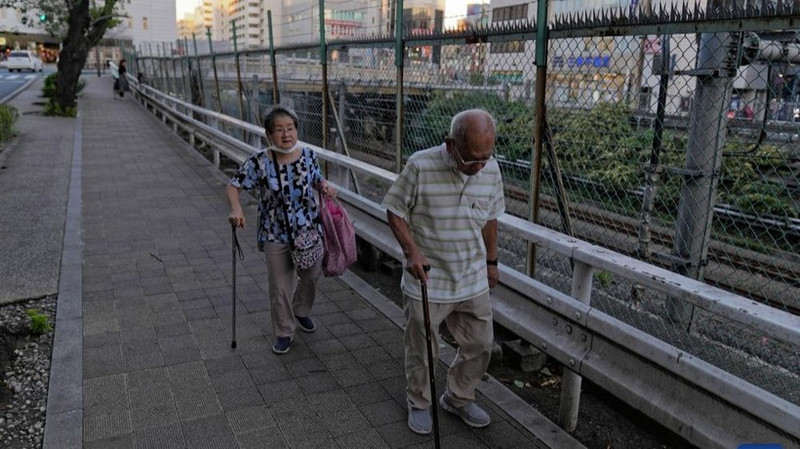Many European countries are “ageing before they get rich”, with the median age reaching 37 while GDP per capita is only about 10,000 USD — a quarter of what developed economies achieved when the median age reached that threshold in the 1990s.
A median age of 37 means that 50% of the population is younger than 37, while the remaining 50% is older than 37. Compared with the mean age, the median age is a more accurate assessment of the level of ageing or rejuvenation of a country.
According to the United Nations’ measure, countries with more than 7% of the population aged 65 or older are considered ageing societies, more than 14% are aged societies, and more than 20% are super-aged societies. Globally, Japan has the highest proportion of people over 65 years old (29.4%), followed by Italy (25.1%), Germany (23.7%) and France (22.5%).
The Republic of Korea is one of the fastest ageing countries in the world, with about 20% of the population aged 65 or older, a birth rate of 0.75 children per woman — the lowest in the world — and an average life expectancy of 89 years. China has a population over 65 years old of 15.4% in 2023 and is expected to exceed 20% by 2030.
According to the United Nations, countries with more than 7% of the population aged 65 or older are considered ageing societies, more than 14% are aged societies, and more than 20% are super-aged societies.
The main cause of population ageing is a combination of increased life expectancy and a falling birth rate. The increase in life expectancy is due to advances in medicine, technology and improved quality of life, and better control of diseases.
The falling birth rate is due to the changing mindset of today’s youth, who tend to delay marriage and childbirth to focus on their careers, personal development or enjoying life.
Population ageing raises major challenges for the economy and society. The EBRD believes that the ageing population is starting to slow down economic growth in some countries. In the “emerging Europe” region of Eastern Europe, Central Europe, the Balkans, the Baltics and the South Caucasus, the decline in the proportion of people of working age is forecast to reduce GDP growth per capita by nearly 0.4 percentage points per year in the 2024-2050 period.
The rapid increase in the ageing population has led to a shortage of social security systems and a depletion of pension funds. The crime rate of people over 60 years old in the ROK is increasing, reaching 18.8% in 2024, the highest among all age groups, mainly due to poverty.
In 2023, the poverty rate among the elderly in the ROK was 39.8%, the highest among the 38 member countries of the Organization for Economic Cooperation and Development (OECD) and nearly 3 times the OECD average (14%). The suicide rate among this group reached 40.6/100,000 people, twice the OECD average.
The ROK has nearly 1 million elderly people with dementia, and this number could double by 2044. The families of these patients are the most affected, spending up to 18 hours a week to care for them, costing each patient up to 23,000 USD per year.
While almost all countries have taken some measures to boost birth rates, none have been particularly effective.
The ROK government has established a new ministry dedicated to population strategy to take systematic, fundamental measures, such as plans to allow 70% of fathers to take paternity leave by 2030, a sharp increase from just 6.8% in 2022, and to reduce the proportion of women who have their careers interrupted by childbirth from 22.3% to 10% between 2024 and 2030.
To compensate for the labour shortage caused by population decline, China has deployed 295,000 industrial robots in 2024.
EBRD said that in most countries with declining birth rates, immigration on a scale large enough to offset low fertility is politically unacceptable and most people are not “keen” on increasing the application of artificial intelligence (AI) to improve productivity. The most feasible solution is to extend people’s working hours, leading to adjustments in pension schemes.
Responding to the challenge of an ageing population requires countries to have a comprehensive, interdisciplinary approach and solutions and to strengthen international cooperation, sharing experiences in the face of “everyone’s concern”.
















